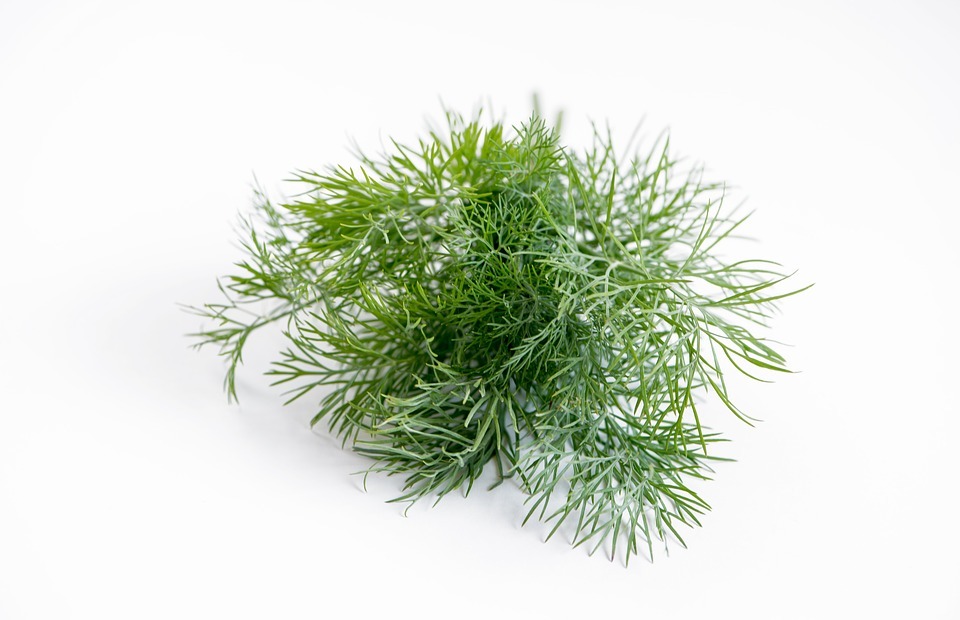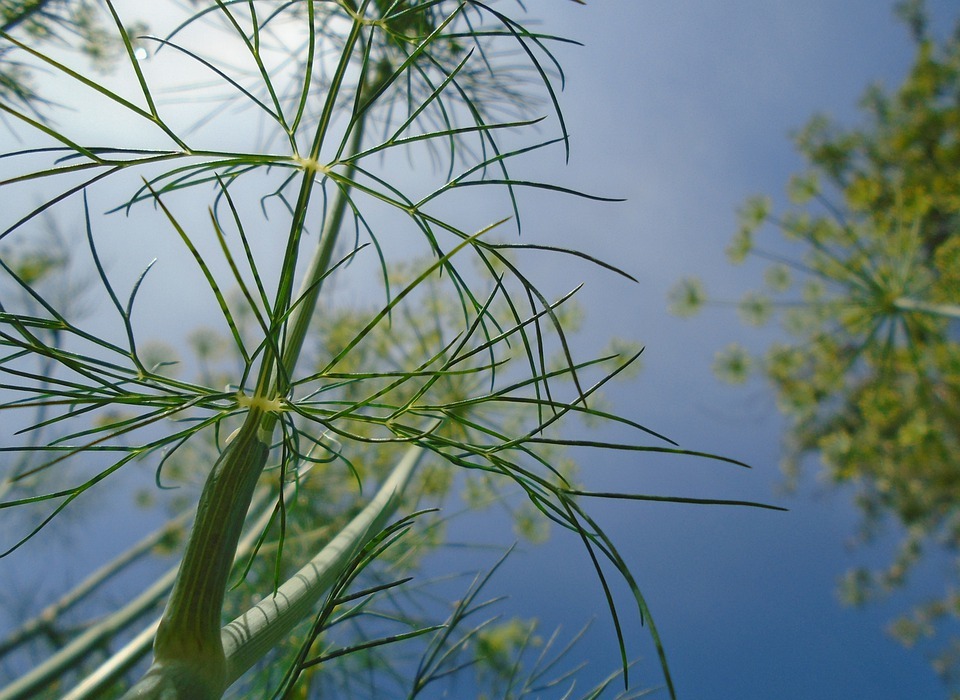This comprehensive guide delves into the question of whether rabbits can safely enjoy dill, a popular herb with a distinct flavour. We'll explore the nutritional benefits and potential risks associated with dill consumption for rabbits, providing you with a clear understanding of its suitability as a treat. Additionally, we'll cover a wide range of other safe and nutritious treats that can enhance your rabbit's diet and well-being.
Part 1: Understanding Dill and Its Nutritional Value

1.1 Dill: An Aromatic Herb with a Rich History
Dill (Anethum graveolens) is an annual herb belonging to the parsley family. Native to the Mediterranean region, it's been cultivated for centuries, valued for its delicate, feathery leaves and distinctive aroma. Dill adds a fresh and pungent flavour to various cuisines, particularly those of Eastern Europe and Scandinavia.
1.2 Nutritional Composition of Dill
Dill is a good source of various vitamins and minerals, including:
- Vitamin C: An essential antioxidant that supports immune function.
- Vitamin K: Crucial for blood clotting and bone health.
- Potassium: Essential for nerve and muscle function.
- Iron: Supports oxygen transport in the blood.
- Fiber: Promotes healthy digestion and satiety.
However, it's important to note that these nutrients are present in relatively low amounts compared to other leafy greens commonly offered to rabbits.
Part 2: Rabbits and Their Dietary Needs

2.1 Rabbits: Strict Herbivores with Sensitive Digestive Systems
Rabbits are strict herbivores, meaning their digestive systems are adapted to a diet predominantly consisting of plant matter. They rely on a high-fibre diet, primarily composed of grasses, hay, and leafy greens.
2.2 The Importance of Fibre in Rabbit Nutrition
Fibre plays a crucial role in maintaining rabbit health. It promotes healthy digestion, supports the growth of beneficial gut bacteria, prevents dental issues, and provides a sense of fullness.
2.3 The Digestive Tract of a Rabbit
Rabbits have a unique digestive system that involves two phases of digestion:
- Hindgut Fermentation: Food is initially digested in the stomach and small intestine, but the majority of nutrient absorption occurs in the cecum, a large pouch in the hindgut where bacteria break down fibre.
- Cecotrophy: Rabbits produce soft, nutrient-rich cecotropes (night faeces) that they re-ingest directly from their anus. This process allows them to absorb essential nutrients that were not fully digested initially.
Part 3: The Impact of Dill on Rabbit Health
3.1 Potential Benefits of Dill for Rabbits
While dill offers some nutritional value, its benefits for rabbits are limited due to its low nutrient concentration. It may provide a small boost of antioxidants and support digestion due to its fibre content.
3.2 Potential Risks of Dill for Rabbits: Digestive Upset
Dill contains certain compounds that can cause digestive upset in sensitive rabbits. These compounds can lead to:
- Diarrhoea: Loose or watery stools.
- Gas: Excessive flatulence.
- Bloating: Swelling in the abdomen.
- Lethargy: Reduced energy levels and inactivity.
These symptoms are particularly common in rabbits with sensitive stomachs or those who are not accustomed to consuming new foods.
3.3 The Importance of Moderation
Even if your rabbit seems to enjoy dill, it's essential to offer it in moderation. Overconsumption can increase the risk of digestive upset and disrupt the delicate balance of their gut flora.
Part 4: Safe and Nutritious Treats for Rabbits
4.1 Hay: The Cornerstone of a Healthy Diet
Hay should constitute the majority of a rabbit's diet, ideally making up 80% of their daily intake. Timothy hay is an excellent choice due to its high fibre content, which promotes healthy digestion, prevents dental problems, and keeps rabbits feeling full.
4.2 Leafy Greens: A Valuable Source of Vitamins and Minerals
Leafy greens are an essential part of a rabbit's diet, providing a wide range of essential vitamins, minerals, and antioxidants. Safe options include:
- Parsley: Rich in vitamin C and iron.
- Cilantro: A good source of vitamin K and antioxidants.
- Romaine Lettuce: High in vitamin A and potassium.
- Dandelion Greens: Excellent source of vitamins A, K, and C.
- Spinach: Rich in vitamin A and folate, but offer in moderation due to high oxalic acid content.
4.3 Vegetables: Adding Variety and Enrichment
A small portion of fresh vegetables can provide additional nutrients and variety to a rabbit's diet. Safe options include:
- Bell Peppers: Rich in vitamin C and antioxidants.
- Carrots: Good source of vitamin A, but offer in moderation due to high sugar content.
- Zucchini: Low in calories and a good source of vitamin C.
- Broccoli: Rich in vitamins C and K.
4.4 Fruits: A Special Treat in Moderation
Fruits should be offered sparingly as occasional treats due to their high sugar content. Safe options include:
- Apples: Good source of vitamin C, but remove seeds before offering.
- Blueberries: Rich in antioxidants.
- Strawberries: Good source of vitamin C and antioxidants.
4.5 Commercial Treats: Choosing the Right Ones
Commercial rabbit treats can add variety and enrichment to a rabbit's diet, but choose those that are:
- Low in Sugar: Excess sugar can lead to obesity and health problems.
- High in Fibre: Promotes healthy digestion and dental health.
- Made with Natural Ingredients: Avoid treats containing artificial colours, flavours, and preservatives.
Part 5: Tips for Feeding Your Rabbit
5.1 Introduce New Foods Gradually
When introducing any new food, including dill, to your rabbit's diet, start with a small amount and monitor for any adverse reactions. Observe their behaviour and stool consistency for signs of digestive upset.
5.2 Provide Fresh Water
Clean, fresh water should be available to your rabbit at all times. Dehydration can lead to various health problems, particularly in rabbits.
5.3 Regular Veterinary Check-ups
Regular check-ups with a veterinarian are essential for maintaining your rabbit's overall health and detecting any potential issues early.
Part 6: FAQs
6.1 Can rabbits eat dill seeds?
Dill seeds are generally safe for rabbits in small quantities. However, they should be offered with caution due to their potential for digestive upset.
6.2 Can rabbits eat dill stems?
Dill stems are generally safe for rabbits in moderation. They can be offered with the same precautions as dill leaves.
6.3 Is dill toxic to rabbits?
Dill is not considered toxic to rabbits. However, excessive consumption can cause digestive upset.
6.4 Can rabbits eat dill plants?
Rabbits can safely eat dill plants, but it's crucial to ensure the plants are pesticide-free.
6.5 How much dill can rabbits eat?
The safe amount of dill for a rabbit varies based on individual sensitivity and size. Start with a small amount and monitor for any adverse reactions.
6.6 Are there other herbs that rabbits can eat?
Yes, many other herbs are safe for rabbits, including parsley, cilantro, basil, and mint. However, always research and confirm the herb's safety before offering it to your rabbit.
6.7 How can I tell if my rabbit is allergic to dill?
Signs of a dill allergy in rabbits include diarrhoea, gas, bloating, lethargy, and skin irritation. If you notice any of these symptoms, discontinue feeding dill and consult with a veterinarian.
6.8 What are the best ways to introduce dill to my rabbit's diet?
Start by offering a small piece of dill leaf, observe your rabbit's reaction, and gradually increase the amount if tolerated. Avoid offering dill if your rabbit has a history of digestive sensitivity or allergies.
6.9 What are some other safe treats for rabbits?
In addition to dill, you can consider offering your rabbit other safe and nutritious treats, including:
- Parsley
- Cilantro
- Basil
- Mint
- Bell peppers
- Zucchini
- Broccoli
- Apples (without seeds)
- Blueberries
- Strawberries
Remember to always offer these treats in moderation and monitor your rabbit for any signs of digestive upset.
Everyone is watching
-

Do Rabbits Lay Eggs? (The Surprising Truth)
OTHER TYPES OF PETSThis article will unravel the common misconception that rabbits lay eggs, exploring the fascinating world of r...
-

Can Rabbits Eat Grapes? A Guide to Safe Rabbit Treats
OTHER TYPES OF PETSThis comprehensive guide will explore the safety and suitability of grapes for rabbits, providing detailed inf...
-

What's a Group of Rabbits Called? (A Comprehensive Guide)
OTHER TYPES OF PETSThis article delves into the fascinating world of rabbits, exploring the various terms used to describe a grou...
-

Predators That Hunt Rabbits: A Guide to Natural Enemies
OTHER TYPES OF PETSI've always been fascinated by the circle of life, that delicate dance between predator and prey. Growing up ...
-

Are Rabbits Nocturnal Animals?
OTHER TYPES OF PETSThe question of whether rabbits are nocturnal animals is a fascinating one, with a surprisingly complex answer...
